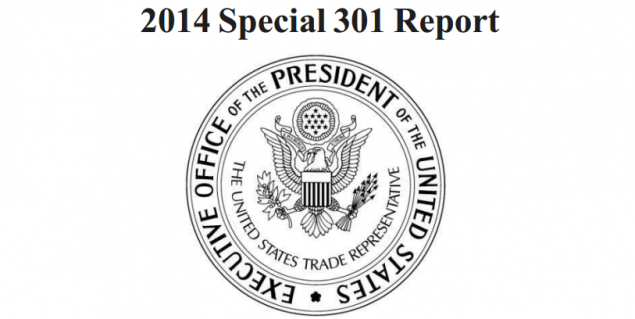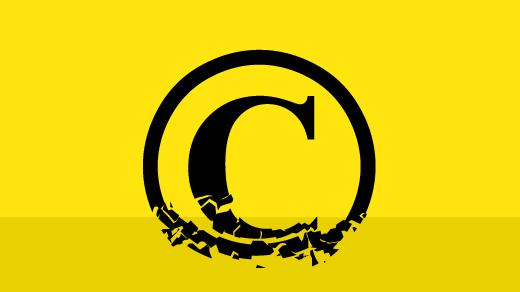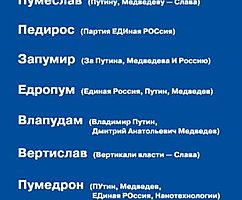Special Report 301 (2014 year)
 Bashny.Net
Bashny.Net
30 April 2014 the US Trade Representative (USTR) has issued a new "Special Report 301". Among the major changes - except Ukraine, Italy and the Philippines from the list of major violators of intellectual property rights. In 2014, 10 countries are in the Priority Watch List, in particular Russia and 27 countries in the Watch List. Several countries, including Chile, China, India, Indonesia, Thailand and Turkey, published in a report each year on the date of its first publication in 1989. H5> 
Who publishes report? What is a Special Report 301? B>
The author of the "Special 301 Report" is the US Trade Representative (United States Trade Representative, further USTR ) - US government agency, established in 1962, is engaged in development of commercial law, drafting of bilateral and multilateral trade agreements, coordination of foreign trade US policy. Is part of the Executive Office of the President of the United States.
Special Report 301 - an annual report with the list of countries that do not provide adequate and effective legal protection of intellectual property, according to the USTR (this is very important, but often overlooked, we'll discuss this later). < br />
For the past 25 years, annual output "Special Report 301", the first report was called «Fact Sheet» and contained a list of 25 trading partners - 8 in the Priority Watch List and 17 in the Watch List.
Priority Watch List is determined by the USTR as "countries have serious shortcomings in the area of intellectual property rights", "requiring increased attention from the USTR». In turn, the Watch List is determined by USTR as "a country with serious shortcomings in the area of intellectual property rights, but they have not yet published in the« Priority Watch List »», such an analogy soccer yellow card. USTR can move the country from one list to another, add or remove them from the report altogether.
Who made the list of the main pirates Special Report 301 in 2014 ?
Priority Watch List: Algeria; Argentina; Chile; China; India; Indonesia; Pakistan; Russia; Thailand; Venezuela.
Watch List: Barbados; Belarus; Bolivia; Brazil; Bulgaria; Canada; Columbia; Costa Rica; Dominican Republic; Ecuador; Egypt; Finland; Greece; Guatemala; Jamaica; Kuwait; Lebanon; Mexico; Paraguay; Peru; Romania; Tajikistan; Trinidad and Tobago; Turkey; Turkmenistan; Uzbekistan; Vietnam.
Internet piracy eyes USTR. B>
Increased availability of broadband connections to the Internet worldwide generates
many advantages, from increased economic activity and the creation of new business models to better access to information and its exchange. However, USTR considers this same phenomenon is extremely effective means of distribution of counterfeit / pirated products, displacing the legitimate opportunities for rights holders. Fresh report Notorious Markets List 2013 , which was published in February 2014 includes a list of major web pirates over the past year, which are controlled by, or are hosted in Canada, China, the Netherlands, Russia, Sweden, Ukraine. From there our traditionally said the Russian and Ukrainian RuTracker.org Ex.ua.
Internet piracy is a serious concern USTR. According USTR, unauthorized retransmission of sporting events over the Internet continues to be a serious problem for many US trading partners, particularly China (most likely China and other partners simply do not care, nobody perplexed this "serious problem"), and the web Sites that link to violators only exacerbate the problem. Incidentally, Yandex for a separate bow, Google has agreed to clean the search DMCA complaints and provide only that permit holders, but refused to Yandex.
USTR cites the example of a company SlySoft, an organization headquartered in Antigua, which developed and sells a program called «Any DVD HD». The software allows the user to hack encryption technology Blu-Ray discs, which prevents the unauthorized reproduction and / or dissemination. After seven years of interaction between the owners and the authorities of Antigua against SlySoft a criminal case, in April 2014 the owner and manager of Slysoft was convicted of distributing tools for cracking the encryption and was fined $ 30,000. Please note that it is not for piracy or promoting piracy and hacking tools for dissemination. And the amount of the fine is just ridiculous for a 7-year history of the intergovernmental negotiations, the owner SlySoft probably just laugh at owners, wrote a check and continued to work.
The problem of the Caribbean
United States has repeatedly expressed concerns about intellectual property rights in the region. In the 10 countries of the Caribbean, local companies refuse to cooperate and to indemnify the representatives of rights holders, and in some countries the government itself controls these pirated media companies as MCTV in Barbados. Thus, the power of the "roof" of your business is nothing new.
Italy and the Philippines
Italy was excluded from the list in 2014 with the adoption of 12 December 2013 regulations for the protection of copyright in the Internet. Legislation now allows you to block content on the principle of notice-and-takedown - owner of the site is exempt from liability if removes content on demand. Reducing the paragraph breaks in Italy, USTR rejoices on the matter. Philippines were excluded from the report on the aggregate of positive achievements for the continuous and successful work in the field of copyright protection.
Ukraine
Ukraine was included in the list of Priority Foreign Country in 2013. This list was empty for 7 years (!). Priority Foreign Country determined by USTR, as the country "with the most egregious situation in the field of copyright, with the greatest adverse impact on relevant US companies and products; countries that do not enter into the negotiation process and / or to make significant progress in the negotiations to ensure adequate and effective protection of intellectual property rights ».
digression. Understanding what categories of thought, our former president, assured that the paper with the words "US Trade Representative announced that we have big problems in the protection of intellectual property rights" to him on the table are not even. Grain, coal, metal - it's understandable, but копро…капир…копиру….ко-пи-райт - Is something terribly-unknown and hardly promising multi-billion dollar revenue, and loaf of copyright do not do. i>
The main problems in Ukraine, USTR identified: 1) the management company responsible for the collection and payment of royalties to American copyright holders; 2) the use of pirated software Ukrainian state authorities; 3) online piracy. Investigation on Ukraine, which ended February 28, 2014, determined that "the policy and regulations of Ukraine concerning copyright are burdening or even limiting for American business, but due to the political situation in Ukraine, no action by the United States will not be accepted." The report for 2014 Ukraine removed.
Russian
In 2014, Russia remains in the Priority Watch List as a result of the continuing serious problems in the field of protection of intellectual property rights. Russia has adopted amendments to its Civil Code, which weakened the protection of industrial designs and created confusion in the mass of exceptions and limitations. USTR concerned by the fact that the protection of intellectual property rights continued to decline in 2013 in the wake of the Year 2012. The process is opaque and inefficient. Rights holders are concerned in connection with the production, storage and retail trade in counterfeit products, including counterfeit agricultural chemicals, electronics, software, auto parts, consumer goods, machinery and other products.
A particular concern is the production and sale of counterfeit pharmaceutical products in online pharmacies. USTR notes that last year in Russia was made 2 convictions for online piracy, both confined suspended sentence, one with a fine (looking at the market, 2 charges cause a smile). USTR notes that Russia is home to many sites that promote online piracy, which harm both the legitimate content market in Russia and producers from third countries. According USTR, control measures in the field of end-user piracy declined sharply, including rarely performed raids became relevant authorities open criminal cases, as well as to enforce judicial decisions.
Most likely, the authors of the "anti-piracy law" and all amendments to it now just resent. Naprinimali here, you know, nuts twisted so that from then on only Cheburashka and USTR all little and little ...! Tolley still will.
Copyright evil. Subject endless discussion, but still evil
It is our opinion, maybe it does not coincide with yours, but we are deeply convinced that we write below and try to explain their position.

USTR - an organization that lobbies for the interests of American copyright holders worldwide. It is quite logical behavior of business: there is cash flow, there is a desire to increase his / save, fight alone does not make sense, and so create a public authority, receive government support (otlistav justifying all the pluses) and spend some systemic control. As they say, nothing personal - just business. But to call the USTR in modern reality something good hard because they de facto impede the free flow of information. Like, we Grail, and you pay your ticket, and we'll show it to you. But somehow forget that once digitized Grail, they have multiplied its value to zero, and now the crook is trying to somehow fix / control.
Copyright is the most unnatural phenomenon for the evolution and progress, which you can think of. Humanity plays the best inventions and lowers them in mass, it is the essence of evolution. Once in ancient times, the leader of the tribe had some ax with a large stone, and he could only hold and dispose of them, but time passed and already after 100-200let such axes were already hard workers in each tribe. And in the future, each of us will have a satellite in orbit. Play something good and useful is the only right way. But the evolution of evolution, and the loot should drip on schedule - this opinion holders. Progress interests them less likely, unlike maximize monetary flows. No, it's perfectly normal approach to work - to preserve and increase revenue. But there are two versions of how this can be done: the first - as a participant in a market economy - to progress, to create a more competitive product, and sell it skillfully; the second - to monopolize the market and degrade. Who wins in the first case - everything, including the company, the consumers, the level of technology, education and so on. In the second - only the company. Which path to choose? Depends on the business culture, its ideology and economic feasibility. So far in the corporate sector copyright wins second, but whether it will be a long time ...?
Speaking of digital content, companies need to think about changing the business model, to try to find alternative financial flows since long-term sales "numbers" is doomed. What is the value of the copies of the work, if it was created by 1-2 mouse clicks? Rights holders, of course, Tanning over themselves and put a spoke in the wheel, lobbying laws, organize USTR and analogues, established organizations like WIPO, the convention is signed, someone even revealing Lynch won even hint at the need for law enforcement officers raiding (quite inadequate, only raids on copywriting in Russia is not enough) ... It's a war with air locks, closed one site - opens 2, 2 closed - open 10. And each time information technology will be 10 steps ahead of holders. All of these monopolies, like the empire will fall, and only the strongest will survive - those who are able to adapt to new conditions, to create and offer something new. If the corporation will win the war for control of content on the network, then one day we will turn into some kind of analogue of the world from the novel "Fahrenheit 451". Moreover, the issue of copyright yet disturbs only the arts, but soon to be joined and technology giants as 3D printers will start to play them hundreds of thousands of products, it will be the biggest battle against copyright public domain. Hopefully, the victory is ours.
Limiting turnover of digital content, the attempt to control the flow of content directly opposite the main goal of the Internet - the storage and transfer of information. Amen.
Source: habrahabr.ru/post/222265/
Tags
See also
Volcanic eruptions in 2014
Company Global Web Index presented a statistical report on the Internet preferences in Europe in 2014
A report on the online preferences of the inhabitants of Europe in 2014 by Global Web Index
Worst Gadgets 2014 according to Engadget
10 Incredible Technologies, which exploded in 2014.
The most futuristic predictions that came true in 2014
10 technologies that exploded in 2014
How to celebrate 2014, to bring happiness and success
The world through the eyes of a writer in 2014
Tom Ford Spring Collection 2014. Things are not for shy.



















